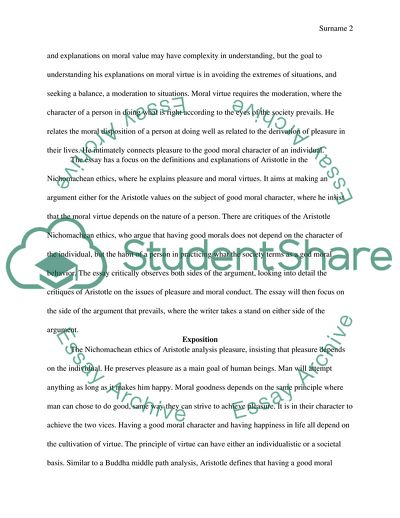Cite this document
(The Nichomachean Ethics by Aristotle Essay Example | Topics and Well Written Essays - 2250 words, n.d.)
The Nichomachean Ethics by Aristotle Essay Example | Topics and Well Written Essays - 2250 words. https://studentshare.org/philosophy/1852191-aristotle-on-virtue
The Nichomachean Ethics by Aristotle Essay Example | Topics and Well Written Essays - 2250 words. https://studentshare.org/philosophy/1852191-aristotle-on-virtue
(The Nichomachean Ethics by Aristotle Essay Example | Topics and Well Written Essays - 2250 Words)
The Nichomachean Ethics by Aristotle Essay Example | Topics and Well Written Essays - 2250 Words. https://studentshare.org/philosophy/1852191-aristotle-on-virtue.
The Nichomachean Ethics by Aristotle Essay Example | Topics and Well Written Essays - 2250 Words. https://studentshare.org/philosophy/1852191-aristotle-on-virtue.
“The Nichomachean Ethics by Aristotle Essay Example | Topics and Well Written Essays - 2250 Words”. https://studentshare.org/philosophy/1852191-aristotle-on-virtue.


